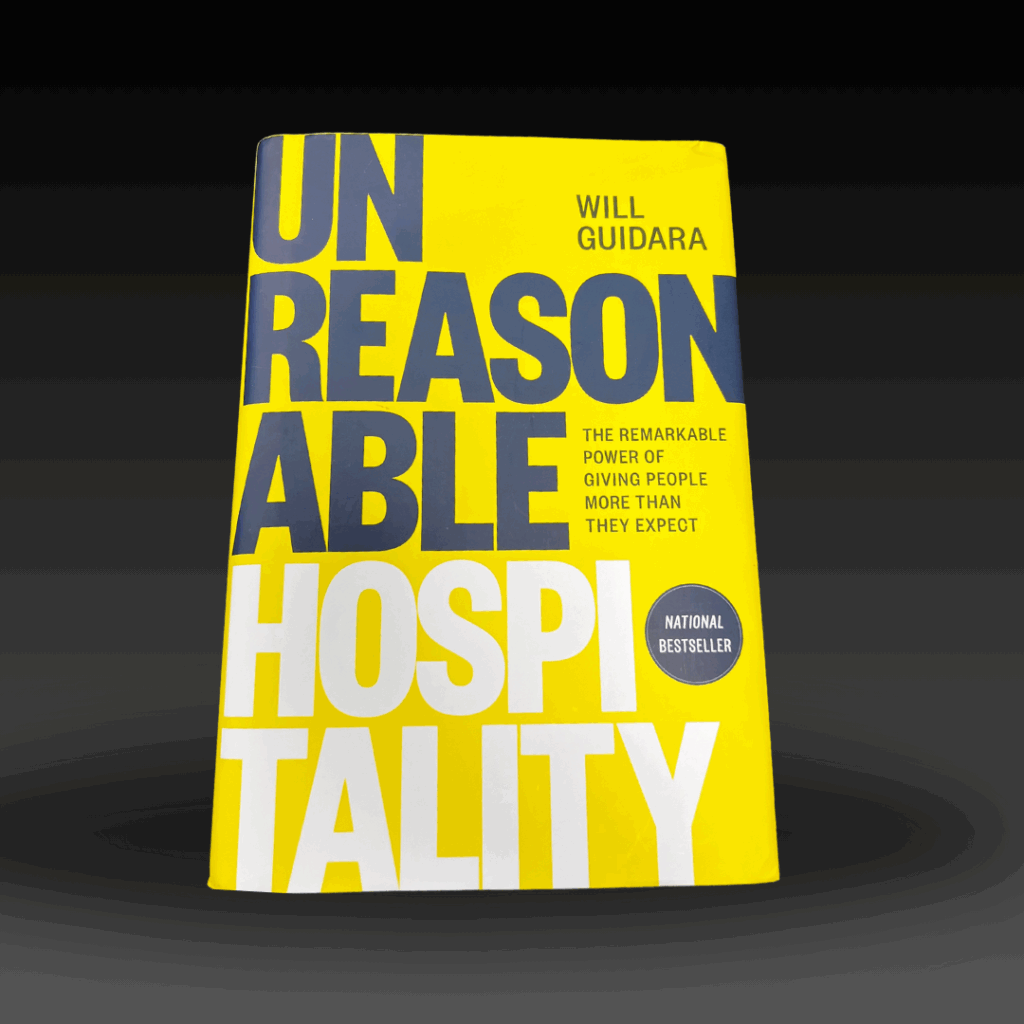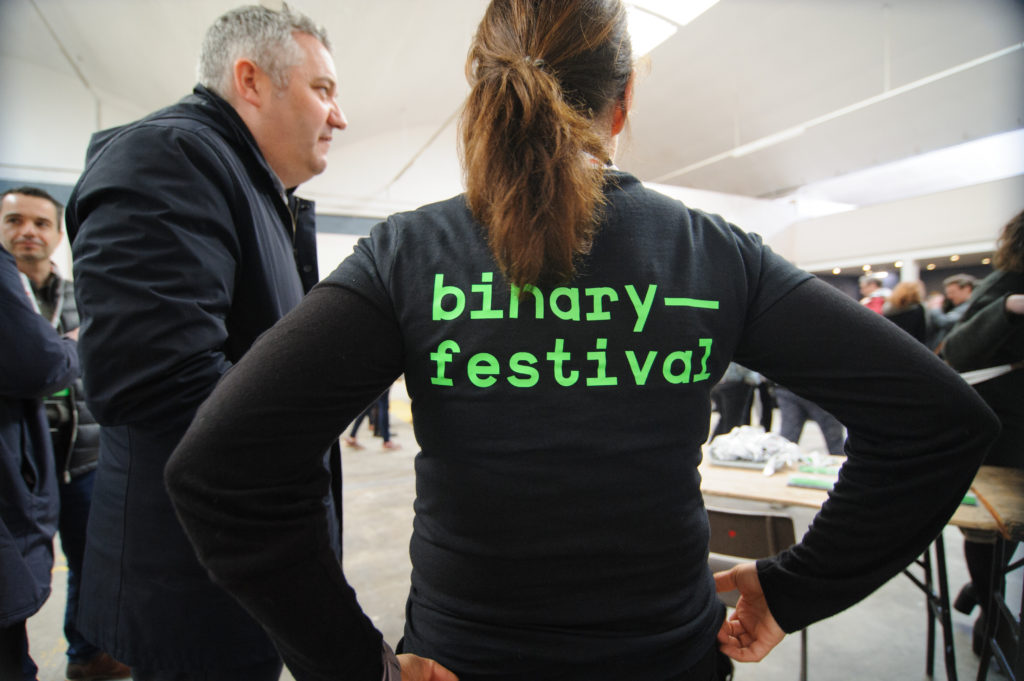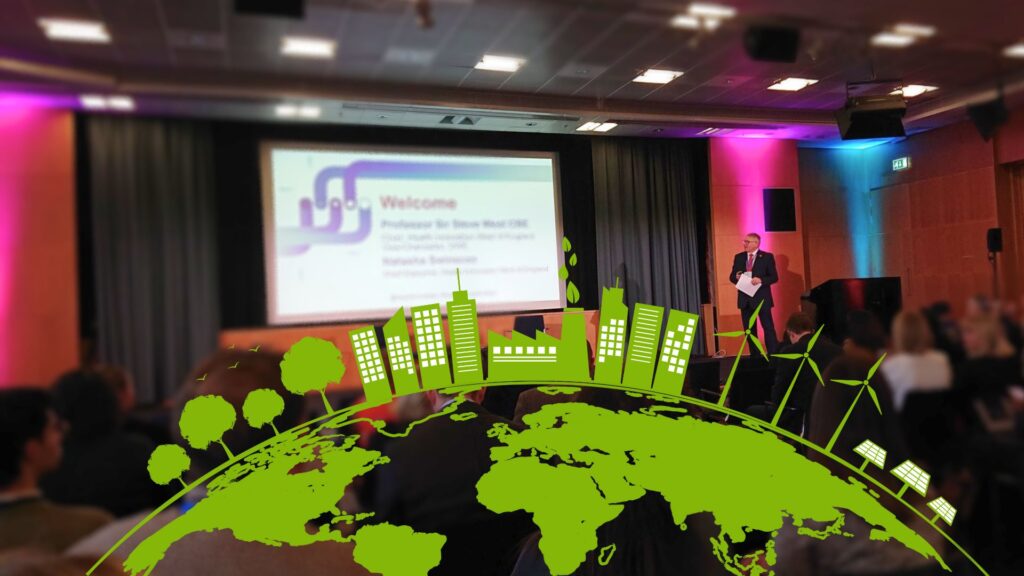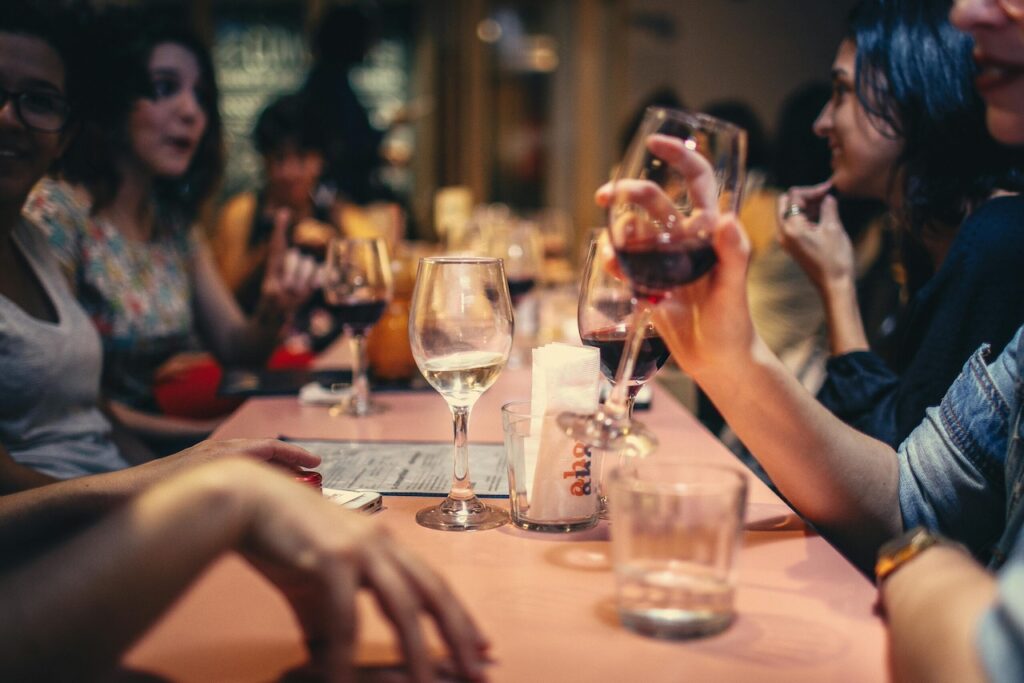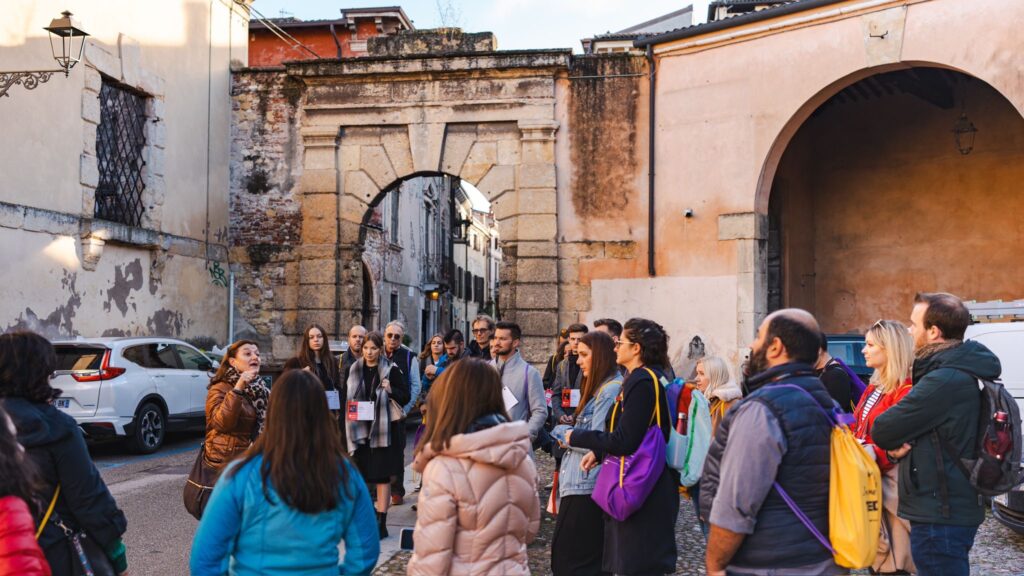Event producers can learn from unreasonable hospitality – the book by Will Guidara how to create belonging, love, joy, and extraordinary experience. In the book Unreasonable Hospitality, Will Guidara shares the philosophy that helped him transform a GREAT restaurant into the BEST IN THE WORLD – not through perfection, but through connection. For those of us designing and delivering events, his message is a powerful reminder: it’s not just about who is speaking or how good the tech set up is. It’s about how we make people feel.
Here’s how we can bring his approach into the events we create.
How can we make people feel like they belong at events?
Belonging doesn’t happen by accident. It’s created through intentional choices that make people feel seen and valued.
From the moment someone registers for an event, we can signal that they’re part of something. It might be as simple as a warm confirmation email that explains what to expect. Or a welcome message from someone who reflects the audience’s diversity. Or name badges designed not just to identify people, but to actually invite connection—adding a question, a fun prompt, or a role title that gives people permission to talk.
At the event itself, belonging is in the details: ensuring accessibility, inclusive language on slides and signage, offering food that respects cultural or dietary needs. Furthermore to something we’ve talked about recently – having inclusive design, in particular inclusive fonts and colours on design. Making space for different voices in the programme. It’s also about having staff who are genuinely welcoming, not just functional.
Guidara quotes Maya Angelou when he says, “People will forget what you said, they’ll forget what you did, but they’ll never forget how you made them feel.”
Belonging starts there.
How do we show people love at events?
Love might not be a word we use often in event planning, but it’s exactly what changes an event from competent to meaningful.
Love looks like going the extra mile—whether that’s hand-delivering a delegate’s lost item, adding a thoughtful touch to a speaker’s green room, or leaving kind notes in breakout spaces. It’s remembering returning attendees and asking how they’re doing. It’s noticing who’s standing alone and inviting them into the circle.
Also it’s about listening—before, during and after the event. What do people need? What are they nervous about? How can we help them shine?
As Will Guidara puts it, unreasonable hospitality isn’t about grand gestures; it’s about specificity and generosity. When you truly see someone and respond with care, they feel loved—and that’s unforgettable. Will’s now infamous story of the group who were dining at EMP who were visiting NY and had not yet had a hot dog. He sent the server out to the local $2 hot dog cart in the street and cur it into 4 and served it beautifully. How seen and loved did those guests feel? If you haven’t read his book you should do that right away: Unreasonable Hospitality and if you haven’t seen The Bear? That is truly insightful too (Guidara is the co-producer for the show).
How do we spark joy at events?
Joy comes from the unexpected, the playful, the personal. Events are often serious—especially in corporate or healthcare settings—but that makes the joyful moments even more powerful. Think small surprises: a hot chocolate station on a rainy day, unexpected applause for someone behind the scenes, music that lifts the mood, or custom lanyards with people’s favourite colours. Joy is in movement, colour, spontaneity, and warmth. It reminds us of this brilliant TED talk by Ingrid Fetell Lee : ‘Where joy hides and how to find it.’
What event producers can learn from unreasonable hospitality
Guidara writes about delighting guests with unexpected treats tailored to their stories. We can do the same—listening for little moments that let us surprise someone with something just for them. When a delegate casually mentions they’re a huge fan of a band, and you play that song as they walk into the next session? That’s joy.
It’s also about creating moments of shared joy—laughter, applause, storytelling, connection—that remind people why they came.
How can we create extraordinary experiences for others?
Extraordinary doesn’t have to mean expensive. It means elevated, intentional, personal.
Guidara describes hospitality as “doing things for others, not to impress them, but to care for them.” That shift—from performance to service—applies beautifully to events. Instead of thinking “What will wow the audience?”, we should ask “What would make this feel magical for them?”. We explore more about the ‘How’ and ‘Why’ of events in this article.
Extraordinary experiences often start with deep empathy. What would make someone feel proud, excited, relaxed or empowered? Design from that place.
We can use storytelling, theatre, surprise, silence and space. Let your attendees step into an environment that feels carefully made for them, not just anyone.
How do we make people feel welcome at events?
Welcome begins before anyone walks through the door. It’s in your tone of voice on social media, the clarity of your joining instructions, the availability of someone to answer questions. At the event, welcome shows up in the atmosphere. Is there someone to greet you with eye contact and a smile? Do you know where to go? Is someone offering you a coffee, or just pointing you to it? Is there music or movement in the space—or does it feel cold and clinical?
Think of welcome as warmth plus orientation. Event producers can learn from Unreasonable Hospitality as Guidara talks about “treating every guest like they’re the most important person in the world.” If we can do that for our delegates—especially the nervous ones, the newcomers, the solo attendees—we’ve done something powerful.
The truth is, people won’t remember what your keynote slides looked like. But they will remember how you made them feel: seen, cared for, and welcome. Unreasonable Hospitality isn’t about over-delivering. It’s about delivering with heart. When we apply that lens to events, everything shifts—from logistics to human moments, from content to connection. Event producers want to create events that people remember, we need to start by making them feel like they matter. That’s where joy is sparked.

